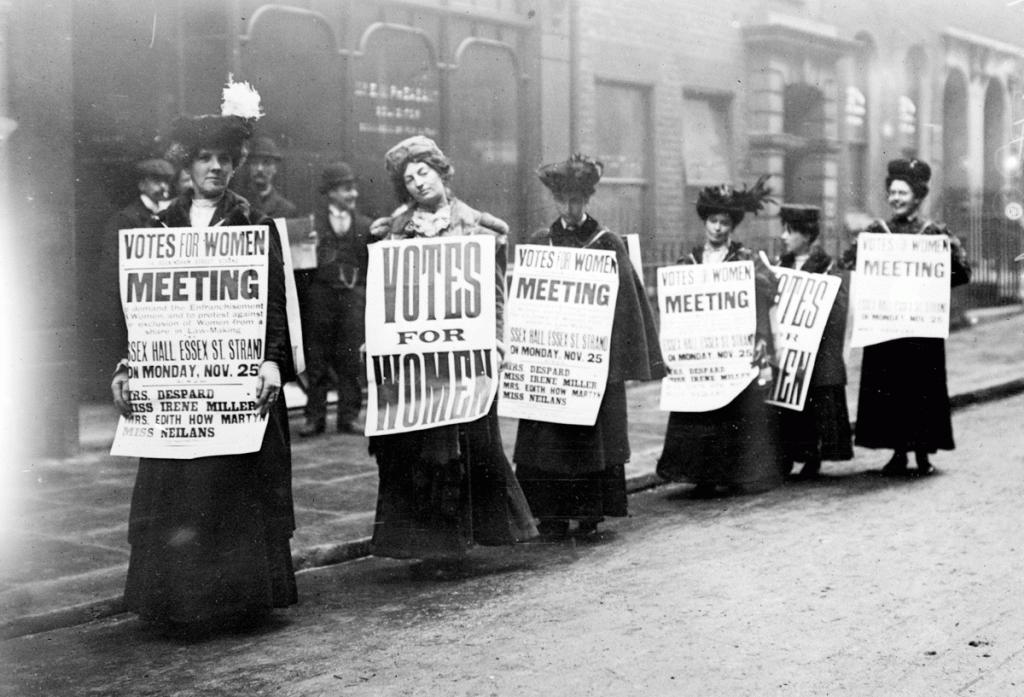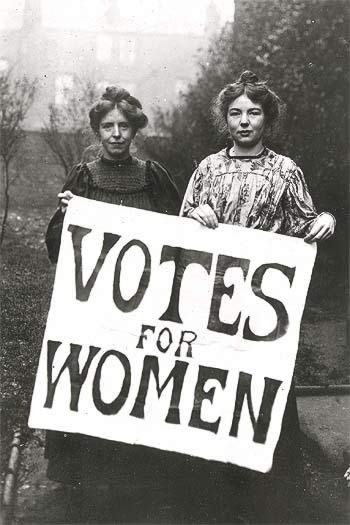History of Feminism - 19th century
First-wave feminism was a period of activity during the 19th century and early twentieth century. In the UK and US, it focused on the promotion of equal contract, marriage, parenting, and property rights for women. By the end of the 19th century, activism focused primarily on gaining political power, particularly the right of women's suffrage, though some feminists were active in campaigning for women's sexual, reproductive, and economic rights as well.
Women's suffrage began in Britain's Australasian colonies at the close of the 19th century, with the self-governing colonies of New Zealand granting women the right to vote in 1893 and South Australia granting female suffrage (the right to vote and stand for parliamentary office) in 1895. This was followed by Australia granting female suffrage in 1902.
In Britain the Suffragettes and the Suffragists campaigned for the women's vote, and in 1918 the Representation of the People Act was passed granting the vote to women over the age of 30 who owned property. In 1928 this was extended to all women over 21.
Emmeline Pankhurst was the most notable activist in England, with Time naming her one of the 100 Most Important People of the 20th Century stating:
"she shaped an idea of women for our time; she shook society into a new pattern from which there could be no going back."
During the late Qing period and reform movements such as the Hundred Days' Reform, Chinese feminists called for women's liberation from traditional roles and Neo-Confucian gender segregation. Later, the Chinese Communist Party created projects aimed at integrating women into the workforce, and claimed that the revolution had successfully achieved women's liberation.
According to Nawar al-Hassan Golley, Arab feminism was closely connected with Arab nationalism. In 1899, Qasim Amin, considered the "father" of Arab feminism, wrote The Liberation of Women, which argued for legal and social reforms for women.
The Iranian Constitutional Revolution in 1905 triggered the Iranian women's movement, which aimed to achieve women's equality in education, marriage, careers, and legal rights. However, during the Iranian revolution of 1979, many of the rights that women had gained from the women's movement were systematically abolished, such as the Family Protection Law.
In France, women obtained the right to vote only with the Provisional Government of the French Republic of 21 April 1944. The Consultative Assembly of Algiers of 1944 proposed on 24 March 1944 to grant eligibility to women but following an amendment by Fernand Grenier, they were given full citizenship, including the right to vote. In May 1947, following the November 1946 elections, the sociologist Robert Verdier minimized the "gender gap", stating in Le Populaire that women had not voted in a consistent way, dividing themselves, as men, according to social classes. During the baby boom period, feminism waned in importance. Wars (both World War I and World War II) had seen the provisional emancipation of some women, but post-war periods signaled the return to conservative roles.






Post a Comment